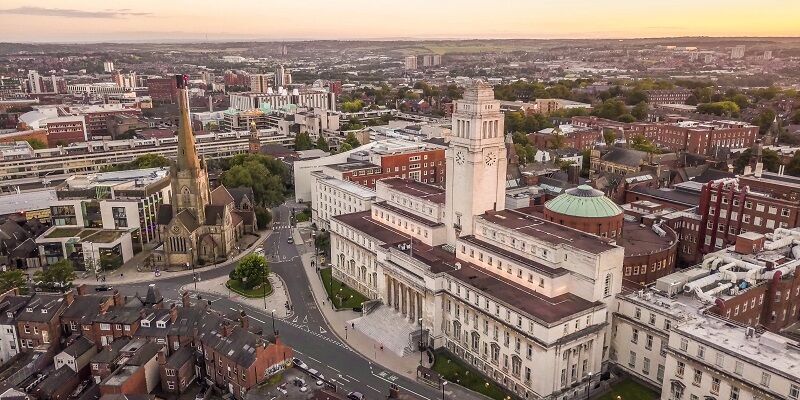
The University of Leeds has fully divested from significant fossil fuel extractors and has set out seven bold principles it will adopt to help tackle the climate crisis.
The principles have been approved by the University’s governing body, its Council, and outline the ambitious steps the University is taking to support the global transition to a low carbon future.
They commit to a 2030 net-zero carbon footprint target and a drive to achieve no direct carbon emissions by 2050.
They also include a commitment to reorient research and teaching away from the fossil fuel sector over time. This complements the Climate Active Strategy adopted last year to guide University investment.
As a result of this Climate Active Strategy, the University has withdrawn investment from significant fossil fuel extractors Total, BP and Shell (Royal Dutch Shell).
Having done so, the University’s exposure to fossil fuel extraction is now minimal, with the limited investment in this sector now focused on supporting companies who are evidently making the transition to alternative energy sources and a low-carbon economy.
The Climate Active Strategy will continue to guide the University’s determined approach to responsible investment.
“ The University has a proud academic record as a leader in the field of climate research and a strong commitment to sustainability on campus and in the wider community we serve. We are committed to leading by example in the fight against climate change.”
Sir Alan Langlands, Vice-Chancellor of the University of Leeds, said: “Climate change is the most demanding global challenge we all face.
“The University has a proud academic record as a leader in the field of climate research and a strong commitment to sustainability on campus and in the wider community we serve. We are committed to leading by example in the fight against climate change. Today, we set out seven principles which will guide our actions in the coming years.
“In doing so we acknowledge it will take time, effort, determination and sheer hard work to achieve a low carbon future. It will require difficult decisions and sometimes pragmatic compromise, alongside action that has direct impact.
“Our overriding aim is to not only to make this transition ourselves, but to harness our expertise to support others, and we will mobilise the University’s combined knowledge, influence, assets and community to tackle this global challenge.”
The recent Intergovernmental Panel on Climate Change (IPCC) report, which included significant input from University of Leeds researchers, warned that humanity has 12 years to take action in order to prevent global warming greater than 1.5°C.
“We’re really pleased to see the University acting on such an important topic, which is clearly at the forefront of many students’ minds.”
Lauren Huxley, Union Affairs Officer at Leeds University Union, said: “We’re really pleased to see the University acting on such an important topic, which is clearly at the forefront of many students’ minds. Policy was recently passed at LUU asking us to lobby the University to declare a Climate Emergency and we see the climate crisis principles as a much more extensive step in the right direction.
"It’s clear that, alongside University staff, students’ passion for the future of our planet has been recognised, listened to and helped drive the direction of these principles.”
The principles build on the University’s firm foundations of world-leading climate research, a strong focus on sustainability and sector-leading education programmes.
The principles were agreed at the University of Leeds Council meeting on Thursday 25 July 2019.
Get involved
Staff and students can apply to become Sustainability Architects to help deliver sustainability projects on campus and bring new ideas on how to deliver the University’s ongoing Sustainability Strategy.
For staff: https://sustainability.leeds.ac.uk/staff-sustainability-architects/
For students: https://sustainability.leeds.ac.uk/student-sustainability-architects/
The Climate Plan is currently being drawn up by Sustainability, in conjunction with the Priestley Centre and other academic partners. Staff and students are encouraged to get involved through upcoming workshops, individual discussions with Sustainability or by sharing ideas with sustainability@leeds.ac.uk.
Blueprint, the University’s sustainability engagement programme, also aims to help Schools and Services focus on issues that matter to them which support the University’s sustainability strategic goals. The Sustainability Service works with teams to scope out their potential impacts and opportunities in order to produce an action-plan bespoke to their team. Find out more at https://sustainability.leeds.ac.uk/blueprint/